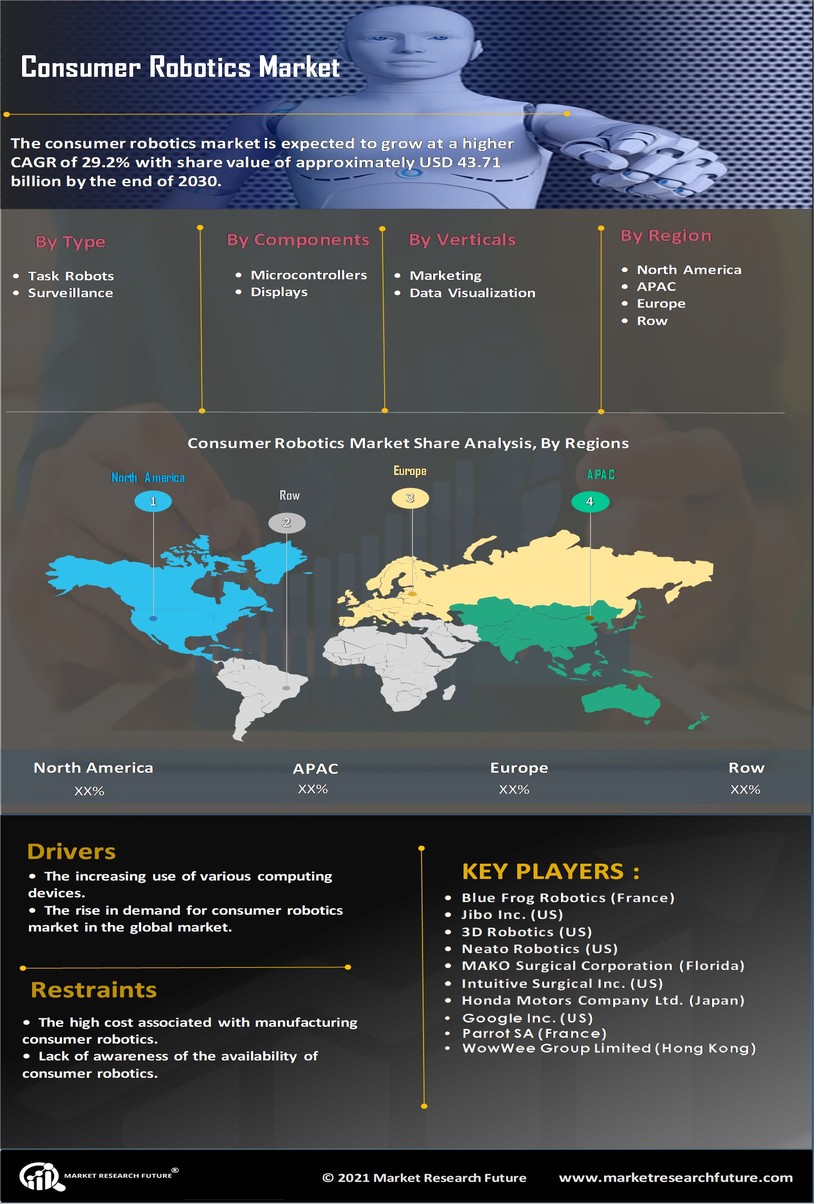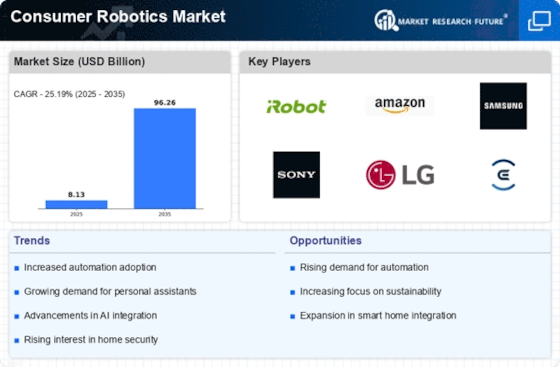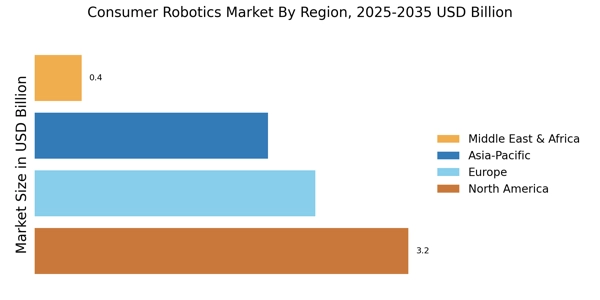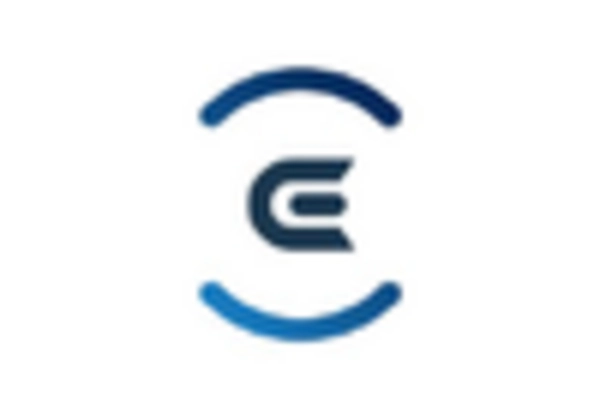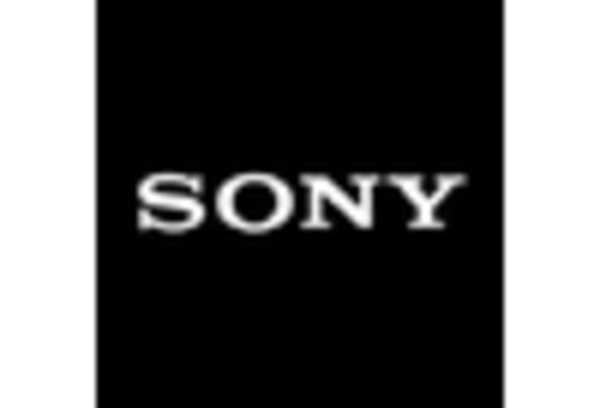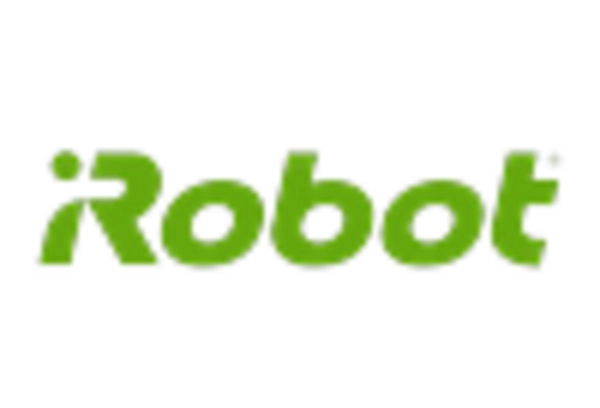Increased Focus on Health and Safety
The Consumer Robotics Market is witnessing a heightened focus on health and safety, particularly in domestic environments. As consumers become more health-conscious, there is a growing interest in robots that assist with cleaning and sanitization. For example, robotic vacuum cleaners equipped with UV sterilization technology are gaining traction among consumers. This trend is supported by data indicating that the market for health-related consumer robotics is expected to grow by 30% in the next few years. Additionally, robots designed for elderly care and assistance are becoming increasingly popular, addressing the needs of an aging population. This focus on health and safety is likely to drive innovation and investment in the Consumer Robotics Market.
Growing Demand for Smart Home Devices
The Consumer Robotics Market is significantly influenced by the growing demand for smart home devices. As households increasingly adopt smart technologies, the integration of robotics into home automation systems becomes more prevalent. This trend is evidenced by the rising sales of smart appliances, which are expected to reach a market value of over 100 billion dollars by 2026. Consumer robots, such as robotic vacuum cleaners and lawn mowers, are becoming essential components of smart homes, providing convenience and efficiency. The synergy between smart home devices and consumer robotics is likely to propel market growth, as consumers seek seamless integration and enhanced functionality in their daily lives.
Technological Innovations in Robotics
The Consumer Robotics Market is significantly driven by technological innovations that enhance the functionality and appeal of consumer robots. Innovations such as improved battery life, advanced sensors, and enhanced mobility are making robots more versatile and user-friendly. For instance, the introduction of robots with advanced navigation systems allows for more efficient operation in complex environments. Market data indicates that the segment of consumer robotics focusing on innovative technologies is expected to grow by 15% annually. As these technological advancements continue to emerge, they are likely to attract a broader consumer base, further stimulating growth in the Consumer Robotics Market.
Advancements in Artificial Intelligence
The Consumer Robotics Market is experiencing a notable surge due to advancements in artificial intelligence (AI). AI technologies enhance the capabilities of consumer robots, enabling them to perform complex tasks with greater efficiency. For instance, AI-driven robots can learn from user interactions, adapting to individual preferences and improving their functionality over time. This adaptability is crucial in a market where consumer expectations are continually evolving. According to recent data, the integration of AI in consumer robotics is projected to increase market growth by approximately 25% over the next five years. As AI continues to evolve, it is likely that consumer robots will become more intuitive, further driving demand in the Consumer Robotics Market.
Rising Labor Costs and Workforce Shortages
The Consumer Robotics Market is being propelled by rising labor costs and workforce shortages in various sectors. As labor becomes more expensive, consumers are increasingly turning to robotics as a cost-effective solution for household tasks. This trend is particularly evident in regions where labor shortages are acute, leading to a greater reliance on consumer robots for cleaning, maintenance, and other domestic chores. Market analysis suggests that the demand for consumer robotics could increase by 20% in the coming years as households seek to mitigate labor costs. This economic shift is likely to encourage further innovation and development within the Consumer Robotics Market.
